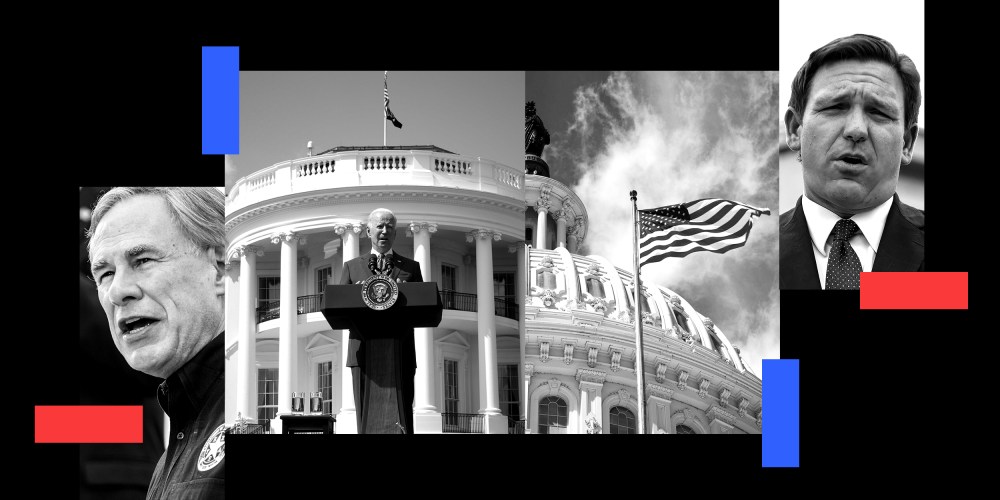“The era of big government is over,” President Bill Clinton declared in his 1996 State of the Union address.
There was no question about that at the time. Clinton was banking on triangulation — co-opting the GOP’s policy ideas to win over its voters — to win re-election that fall. After years of hearing about Reagan Republicans’ grip on the suburbs and the GOP takeover of the House in 1994, Democrats had decided “if you can’t beat ’em, join ’em.” The result was two parties both in favor of shrinking the federal government and leaning into a more laissez-faire neoliberalism.
Twenty-five years later, that time is over. Shrinking the size and scope of government is no longer a driving force in either party. What we see instead are two very different visions of the role of government but no real desire from either side to curtail its influence. Republicans are increasingly embracing authoritarianism over libertarianism, even as they frame it as “freedom”; Democrats have stopped running away from the “tax and spend” criticism that Clinton embraced.

It’s not that big a surprise to see this shift on the Republican side of the aisle. The GOP has had a loose commitment to limited government over the years, in terms of both raw power and areas of influence. On an ideological level, the anti-regulatory spirit embedded in the party has always clashed with the social conservative branch’s need to control certain people’s bodies and behavior through anti-abortion and anti-LGBTQ policies.
And while President Ronald Reagan campaigned on slashing spending through cutting the government’s “allowance,” the resulting tax cuts didn’t slow a massive increase in federal spending. We saw the same under Presidents George W. Bush and Donald Trump. Ballooning deficits undercut promises of reduced government.
The GOP has had a loose commitment to limited government over the years.
Trump didn’t even pay lip service to limiting the federal government’s power and scope. But the party went along with him, even though his flashes of authoritarianism are diametrically opposed to the libertarian impulse once prevalent in the more “serious” wing of the GOP.
Today, the governors vying for Trump’s supporters have been fine with using whatever means possible to assert similar auras of authority. Gov. Greg Abbott has consolidated power in Texas by riding roughshod over city and county elected officials and countering what had once been party dogma: Local governments produce better outcomes. Abbott’s latest executive order, issued Thursday, bars any level of government in the state from mandating Covid vaccinations, despite the Pfizer vaccine’s recent FDA approval.
Meanwhile, Florida Gov. Ron DeSantis has spent weeks ordering school districts not to mandate masks for students. (That effort appears to be backfiring as school boards, cities and counties call his bluff.)

What really makes this latest shift from small government so striking is the GOP’s newfound desire to regulate the behavior of private businesses. After decades of devotion to the free market, Republicans recently began targeting what they consider symbolically “woke” actions by major corporations. Attempts by Abbott and DeSantis to ban cruise lines from requiring vaccinations for their passengers show that this interventionism extends to dictating corporations’ more substantive actions.












